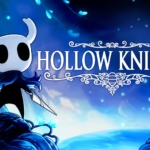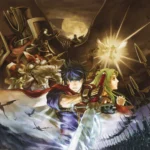
As stress over my job hunt continues, I have found myself defaulting to not playing new experiences, but rather doing more “comfort gaming”—old titles I know very well, and that feel safe, familiar and predictable.
This has me playing older titles, such as Fire Emblem and The Letter at this moment. But at this moment, I have a much more interesting story with the former, and I would consider myself a long-time fan of the series, having played most of its main entries in some capacity (as of Conquest, anyway, I haven’t played Three Houses nor Engage).
Still, the last time I engaged meaningfully with the franchise was five years ago, when I replayed both of the Tellius games back-to-back, so as an exercise to keep my blog alive and keep playing games, I have a new project that I’d like to work on on top of my so-called “backlog project”.
But first, we can go over some context, what I think of what I have played up to now, and what I will be looking out as my views on gaming and politics (and these games are very political) have matured over time.
How Did I Become a Fan of a Niche Franchise?

This is probably old news to most people by now, but Fire Emblem did not use to be the commercial success it used to be. Before the breakout hit that was Awakening, Fire Emblem struggled to break into 500,000 sales globally, and it remained a niche title between Nintendo’s flagship series. It is actually by pure coincidence that I even started playing it.
Back when Blockbuster was a thing, I remember going to its subsidiary for gaming (GameRush in Mexico’s case) and just kind of looking for something I could try out. I remember seeing Radiant Dawn on its shelves and, in a moment that foreshadowed Quest and Roam almost 16 years ago, thought: “hmm, I have heard a lot about this, I should probably try it out”, nabbed the piece, and just went home to try it out. I think I also thought it was actually Final Fantasy what I had heard about, but it’s so long ago, I honestly can’t remember.
I don’t think I had played a SRPG before this, so I was very unfamiliar with it, even thinking to figure out if motion control could influence battles.
Still, a few hours passed, and I became engrossed in what was a multi-perspective global conflict, and unit customization and growth that I had never done before. I proceeded to beat the game close to 10 times, sometimes restarting it as soon as I beat it. I actually had to buy the game several times because the disc kept getting scratched, which is probably cringe-worthy for someone looking to get its physical copy today—I went through four in my teenage years.
Of course, I eventually also needed to play the one that came before it, Path of Radiance (I also had a physical copy of this, and I mourn to this day that I borrowed it to a friend that lost it), and well, the rest is history, obviously I needed to play all the other ones.
Which Ones Have I Played?

It is a bit hard to say, in retrospect, why I loved Radiant Dawn so much. While its narrative ambition is obvious to me as an adult, I was a 14-year-old who was somehow absorbing this story about a layered political conflict. Still, if I had to guess, I’d say that its themes about loyalty, prejudice and mutual understanding probably struck a cord in my difficult teenage years. It also set the bar very high for me—I still regard this as one of the best games I have played, though of course nostalgia is probably doing some lifting here.
That does mean that, of course, I have also played Path of Radiance extensively, though not as much as Radiant Dawn. I have almost completed this one and thus will save my thoughts for the actual review.
I have also played New Mystery of the Emblem and Shadow Dragon on the punishing lunatic difficulty. I remembered being very fond of how Marth was portrayed in both games, and while I am almost done with New Mystery right now, I do not think I’ll replay Shadow Dragon. Still, while they are simplistic by today’s standards, it’s surprising that we even stories at the scope that they have back in the 90s. I’ll save my thoughts for the review.
For the GBA games, I played and completed The Blazing Blade, though I do not remember much of it. I also played The Sacred Stones but I am almost sure I have not completed it. My memory of these games leaves me with a lukewarm feeling at best; while I can hype them as part of the games that gave me the Tellius duology afterwards, I do not regard them in any particular good or bad way. I have not played The Binding Blade, though I might do so if I find the replays of the GBA titles enjoyable enough.
For Echoes, I am 3/4 into a playthrough I did not finish. I honestly do not want to replay it again; I don’t harbor any negative feelings toward it, but it is indeed the black sheep of the series. I will probably finish it and see some plot recaps to help me have everything fresh if I write a review on it.
As for the Jugdral games, I have completed Generation 1 of Genealogy of the Holy War. I know this take is very controversial, but by modern standards, this game is a fossil. It has the makings of a good game, but it feels very bad to play, and its presentation is archaic. It’s a slog to get through the huge maps on what is honestly a pretty easy game, and while I can appreciate the ambition for its time, I don’t know if I want to replay it. Thracia, though, I have not played ever before, and I’m excited to try it out.
So… What About the Modern Games?

I am honestly a bit sad about the state of Fire Emblem right now, but I admit I am evaluating it with a lot of nostalgia. If we look at the previous section, we can see that I don’t actually love most of these games—I have mid receptions of Genealogy and the GBA titles. While I like the DS games a lot, one of them didn’t even get localized, and I don’t really feel like replaying Shadow Dragon. This means that I am holding the rest of the franchise to what I would say is its peak (which so happens to be the ones I played first).
That said, I think Awakening was a very strong entry and one which I played a lot. Though plot-wise it falls off a lot after its first arc, I think it has very fun ways of customizing your characters through marriage mechanics, and while at the time I remember thinking the cast was funny despite their one-dimensional jokes, I am fearing that I might find it to be the beginning of what came next.
Which leads me to… Fates. While much praise has been given to Conquest’s map design, it is undoubtedly a game with a very, uh… troubled narrative. Conquest’s gameplay praise might make me replay it fully, but I am not excited to see everyone fawn over Corrin, it’s a bit disgusting. I will probably not touch Birthright and Revelations for similar reasons.
This only leaves us with Three Houses, which I have one or two hours on it at most (though I do not appreciate the school setting), and Engage. I remain a bit excited about Three Houses, even though I do not like the initial school setting.
What Tropes am I Looking For?
I was initially concerned that revisiting Fire Emblem would make its portrayals of monarchy and loyalty feel hollow or ideologically outdated. But as I am revisiting these titles, I find that the text itself often challenges these assumptions: the leaders we follow are not followed because of birthright alone, but because they prove themselves worthy through action and sacrifice. The series, at its best, presents a romanticized ideal of leadership that is more mythic than systemic—and I think that’s not only acceptable, but powerful in its own context.
In this sense, Fire Emblem feels more like a mythologized story of “great leaders” who care for their people and are willing to take immense personal risk for them, and the then-enforced permadeath mechanic drives home that war is dangerous even for the “heroic” side; if you’ve played any of these games, you know that you are more often than not throttling carefully because any miscalculation results in a permanent death of one of your characters (or more realistically, a chapter restart).
It is great at giving us idealized leaders, like Marth and Ike, and that’s something that I think is valuable.
In Summary
I am almost done with New Mystery and Path of Radiance. I will probably play at least one of the GBA games and Thracia. I might play Genealogy and Fates, and I will definitely play Three Houses.
Of course, I can’t pretend I’m coming into these games with fresh eyes. I know these maps, I know these twists, I know these mechanics. And that’s fine. My goal isn’t to simulate a first-time experience—it’s to see if these games still hold up when I engage with them knowing everything they are. I want to see if, despite my knowledge, despite my nostalgia, despite my much more nuanced political viewpoints, they still resonate as good games today, not just as relics of my teenage years.
And in truth, I don’t know what these replays will reveal about me. I can’t distill how much I’ve changed since I was a teenager into a neat paragraph. let the games show me. Maybe I’ll find the same sparks of admiration, or maybe I’ll see cracks I ignored before. Either way, that tension between memory and reality is exactly what makes this project exciting.

